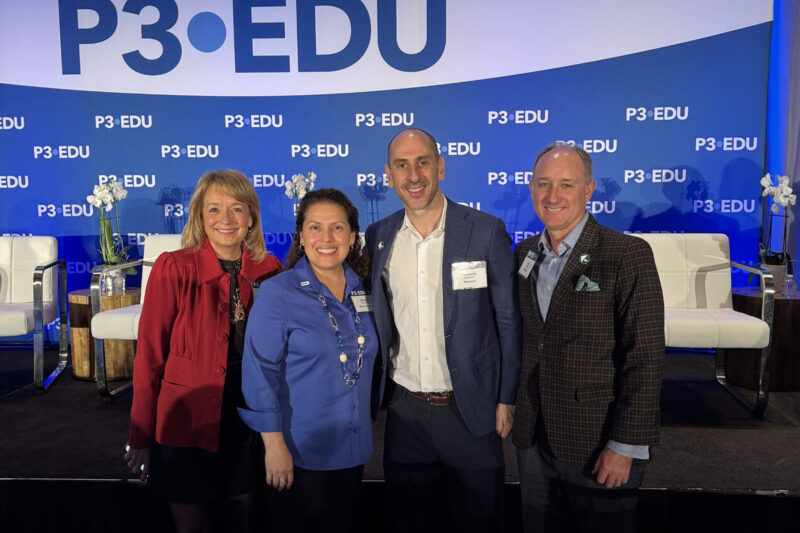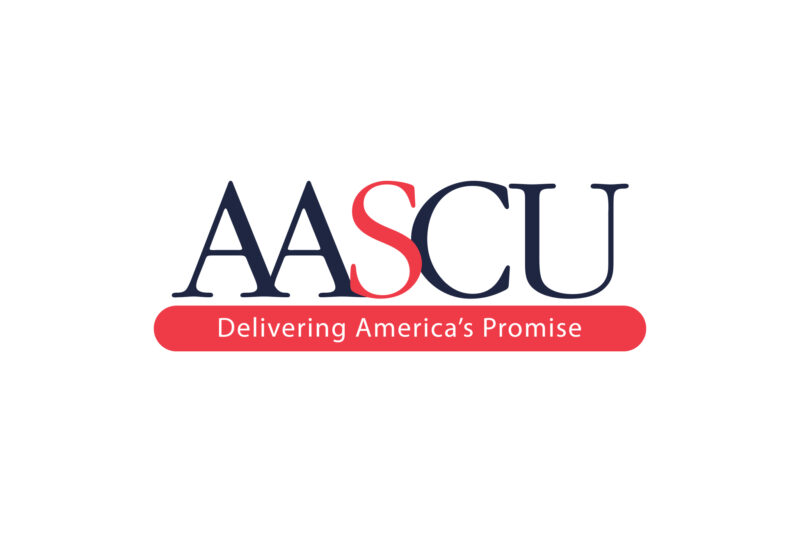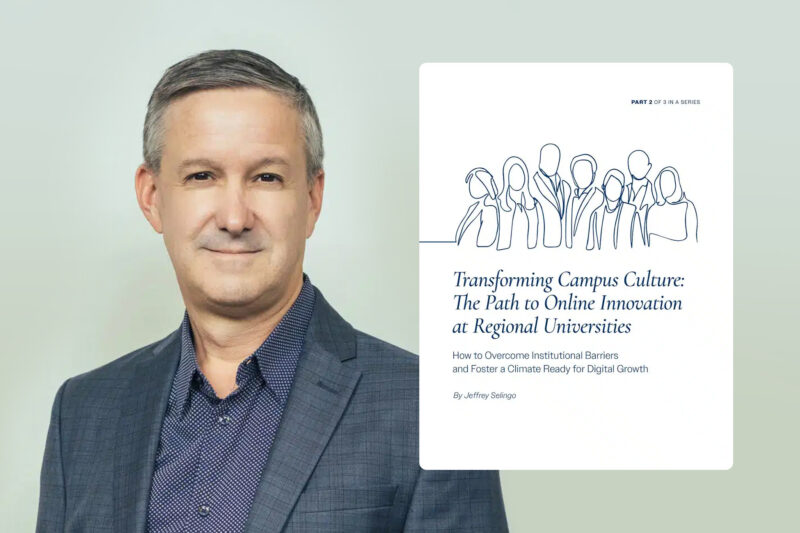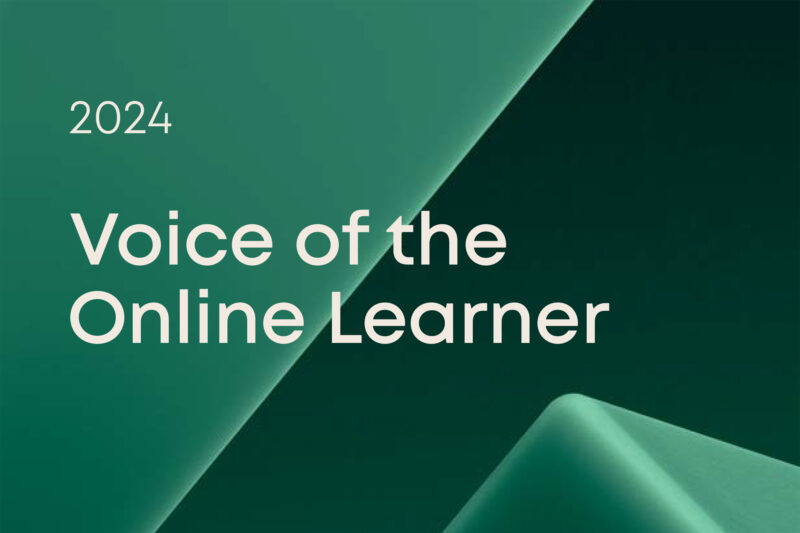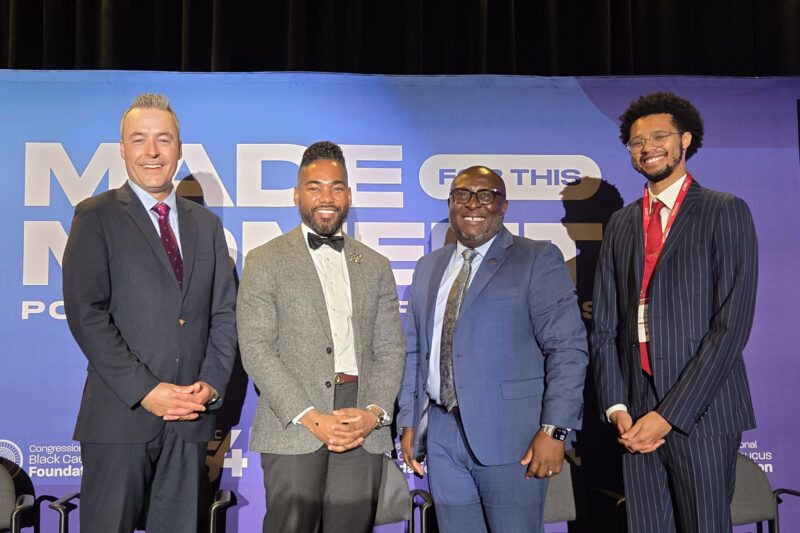Working professionals and employers have long recognized the importance of advanced degrees for long-term skill development and career relevancy. And while advanced degrees are still important for professional success in the eyes of employers, American learners have mixed reviews on the value of a college degree due to rising tuition costs and student debt. Working adults aren’t always able to commit to a full degree program when they need additional skills. Where is the middle ground for professionals who need to upskill, but aren’t convinced that another degree is their solution? What if an advanced degree isn’t enough to fill future skill gaps in career-specific areas?
Alternative credentials can be a steppingstone for modern learners to quickly gain critical skills that are most relevant to their career goals. They are especially useful for working adults who are interested in learning more but can’t commit the time and money for an advanced degree.
What are alternative credentials? And how can universities leverage them, alongside affordable degree programs, to further expand access to education for modern learners? In the 2025 Voice of the Online Learner report, we explore the nuances between current perceptions of alternative credentials among online learners and the potential long-term value they can bring to both students and institutions. This article provides a high-level overview of alternative credentials and provides suggestions to universities that aren’t sure how to leverage them.
What are alternative credentials?
The Online and Professional Education Association (UPCEA) defines alternative credentials as “competencies, skills, and learning outcomes derived from assessment-based, non-degree activities that align to specific, timely needs in the workforce.”
In short, alternative credentials serve as learning opportunities for students to gain professional knowledge and skills, but in quicker and more flexible formats than full degree programs. Examples of alternative credentials include certificates, micro-credentials, badges and other acknowledgements that are earned from the mastery of specific skills.
Why should universities care about alternative credentials?
Alternative credentials are growing in popularity amongst learners. Job skill requirements continue to evolve, and learners are increasingly seeking opportunities to upskill and reskill. Alternative credentials serve as a tool for learners to address immediate skill needs to be more marketable in specific areas.
According to the Voice of the Online Learner, nearly half of online learners have already participated in non-degree programs or credentials. For universities, this means that they should seriously consider alternative credentials when strategizing on how to best meet the needs of modern learners. For example, offering more alternatives to degrees is a good way to both attract new learners and provide future opportunities for learners who are already currently in degree programs.
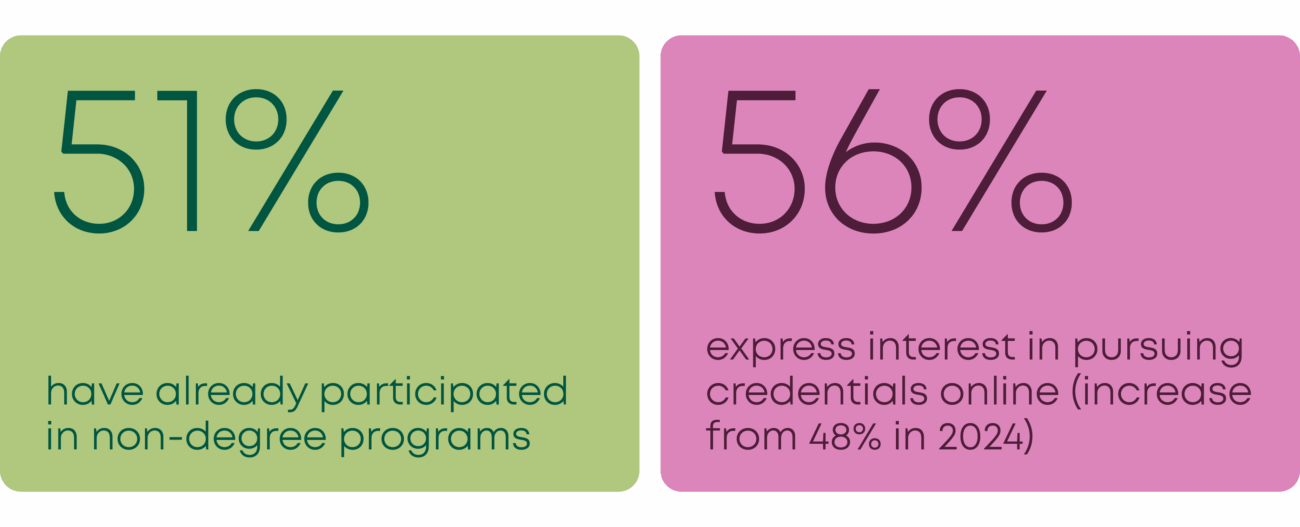
The growing presence of alternative credentials presents new opportunities for universities as they explore ways to reach prospective students and strengthen relationships with existing ones.
Employer recognition
There are still some learners who are hesitant about the value of alternative credentials for lifelong learning and to achieve their long-term career goals. Learners who are apprehensive about alternative credentials are most concerned with affordability and recognition by their employers.
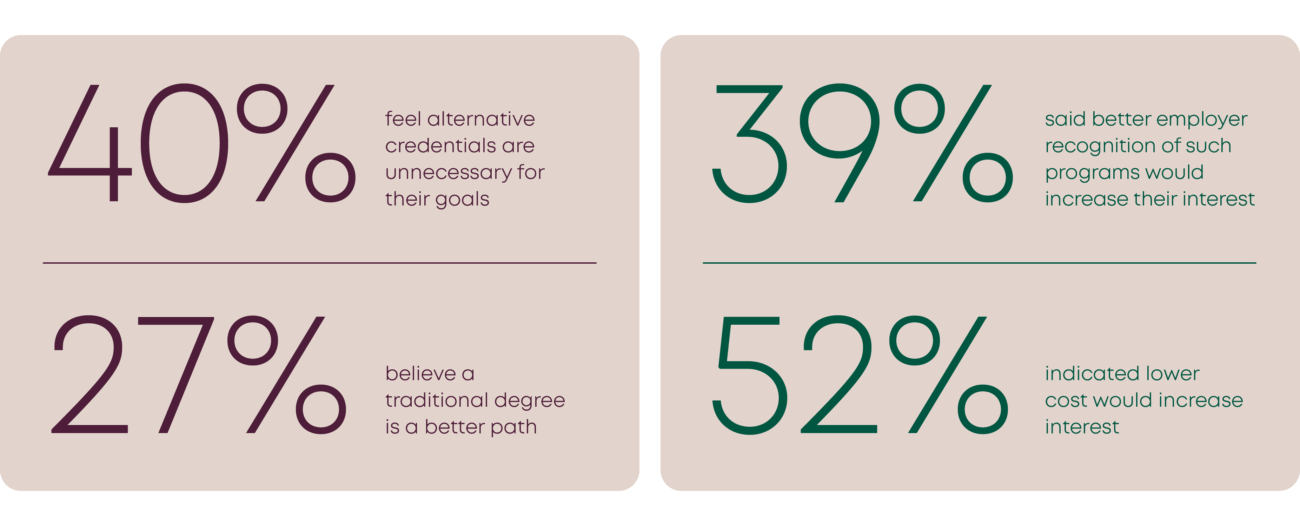
This apprehension presents an opportunity for universities to help students better understand the long-term value of alternative credentials. Credentials can be useful beyond an immediate skill gap. Universities can clarify the value of alternative credentials to employers through strong relationships with such employers, and by leveraging industry recognized certifications.
A strong example of university-employer relationships that forged a high demand for alternative credentials is the University of the Sunshine Coast (UniSC), one of our partners in Australia. The university’s School of Science, Technology and Engineering partners with Risepoint and Fortinet, a leading cybersecurity company, to offer career-aligned online graduate certificates in Cyber Forensics and Cyber Security. These programs have attracted hundreds of modern learners – predominantly at the graduate certificate level – with outcomes that align with exceptionally strong demand and near-full employment rates in the cybersecurity workforce.
Stackable credential options
By themselves, skills-based, employer-endorsed certificates are valuable credentials that can give a learner the right amount of learning for that moment in time. But in many cases, alternative credentials can also be “stacked” towards a full degree. With this benefit, students can gain immediate career-relevant skills and over time, be able to apply these credentials to a new degree. This feature increases the value of alternative credentials, making the time and effort students take to complete them even more worthwhile, especially for learners who are most concerned with long-term impact.
When deciding whether to pursue alternative credentials, how important are the following factors to you?
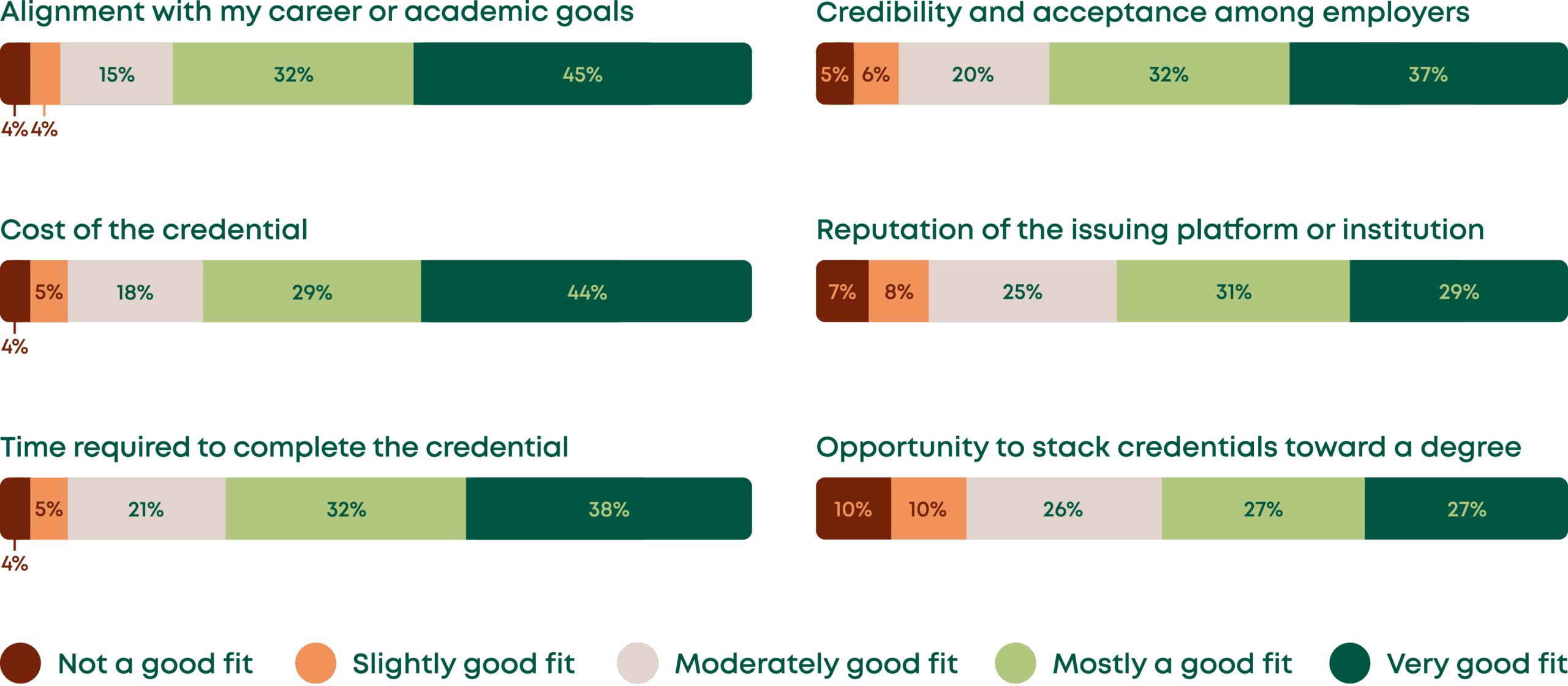
Some online learners aren’t aware that they can stack non-degree programs as a pathway toward a full degree. Universities have an opportunity to build awareness around stackable alternative credentials, so students don’t perceive them as unrelated to full degree programs.
Furthermore, stackable non-degree options can help universities maintain longer relationships with students. Those who leverage alternative credentials to meet an immediate skill need may consider additional credentials and courses if they can contribute credits for a new degree.
New offerings in workforce technology
Workforce technology is evolving quickly, especially as it relates to generative AI. Students recognize that the demand for AI technology is growing, but many are unsure of how to appropriately integrate it into their work. Despite this recognition, 69% of learners report that their university has not integrated Gen AI into the curriculum yet.

Alternative credentials are a great place to educate students on gen AI and help build confidence in how technology can be used in the workplace.
In the modern landscape, skills and technical knowledge for career-relevancy change often. Learners are working to maintain their marketability to meet these changes as quickly as they can. Universities need to adapt learning formats to meet learners’ needs – alternative credentials are one way that institutions can meet learners where they are.
Meet the author

Dee Raineri
As the Chief Academic and Product Officer at Risepoint, Dee works with university partners around the world to help them deliver education that accelerates career success and institutional growth.
Dee earned a PhD in biochemistry and chemistry from the University of Southampton in the UK and completed a postdoctoral appointment at the University of Washington. Throughout her career, Raineri has earned recognition as an academic product trailblazer, finding innovative ways for universities to reach more students with workforce-ready degrees and programs.
Learn more about what learners are thinking about alternative credentials, and how institutions can leverage them for expanded access and impact, by reading the 2025 Voice of the Online Learner report.


